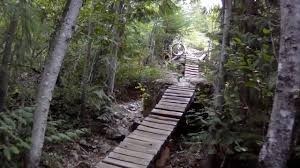A Colorado man died on a popular mountain bike trail near Wedgemount on Sunday, Oct. 27, police have confirmed.
At about 3:30 p.m., Whistler RCMP, alongside Whistler Search and Rescue (WSAR), joined paramedics already on scene after a call of a male suffering cardiac arrest on the Comfortably Numb trail, near the Wedgemount Forest Service Road.
Despite receiving medical assistance from witnesses and first responders at the scene, the 54-year-old Colorado man did not survive.
It's unclear whether the heart attack was triggered by an injury the man sustained while on the trail or not.
"I can't really say whether the two are connected. I wasn't on the scene, but it was called in as a cardiac arrest," noted WSAR manager Brad Sills.
Comfortably Numb is a black-diamond rated trail that is described by Trailforks.com as a challenging cross-country ride that is "Brutally relentless and incredibly technical."
This marks the third bike-related death in the Sea to Sky this month. On Oct. 1, 22-year-old Canadian ski-cross team member and Whistler Mountain Ski Club alumnus Mikayla Martin died following an accident on a Squamish trail. On Oct. 9, a Burnaby man died after falling on the A-line trail in the Whistler Mountain Bike Park.
The death of champion freerider, Vancouver Island resident Jordie Lunn, who suffered a fatal head injury Oct. 9 while riding cross-country trails in Mexico, also sent shockwaves through the B.C. mountain-biking community.
Sills said mountain biking has made up a larger part of WSAR's callouts in recent years as the sport continues to grow in popularity.
"Mountain biking, for the first decade and a half of its existence, we rarely got called to anything, and in the past three years, it certainly is an increasing cause of our callouts, so something is happening when you look at the growth of the sport over that same period of time," he said.
Mountain biking was responsible for nine search-and-rescue callouts in the period covering March 1, 2018, to March 1, 2019, according to WSAR's most recent manager's report. That puts it third on the list, after hiking (16 callouts), and out-of-bounds skiers (11).It also marked the first time that summer calls outpaced the winter for WSAR.
This story has been updated as more information became available.




